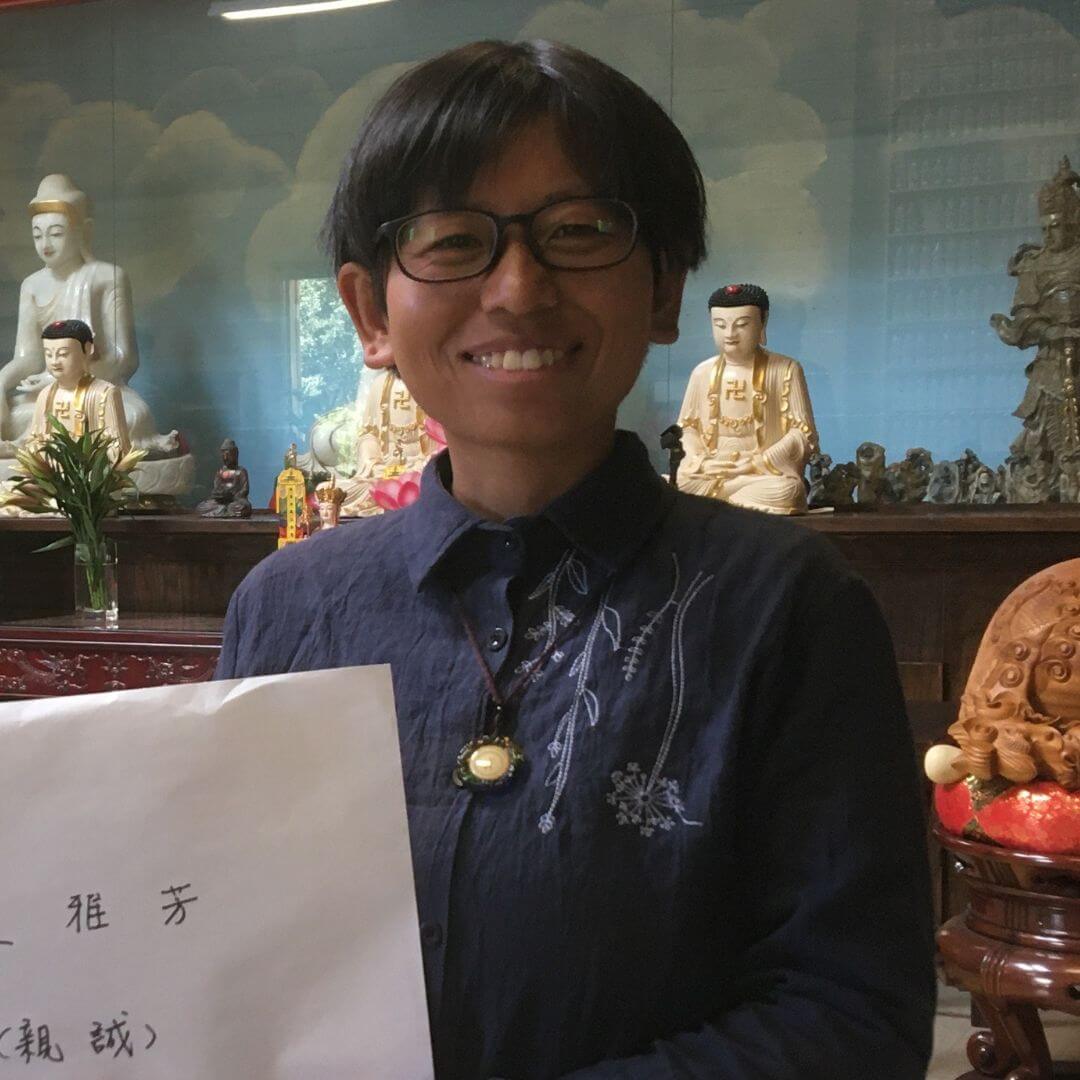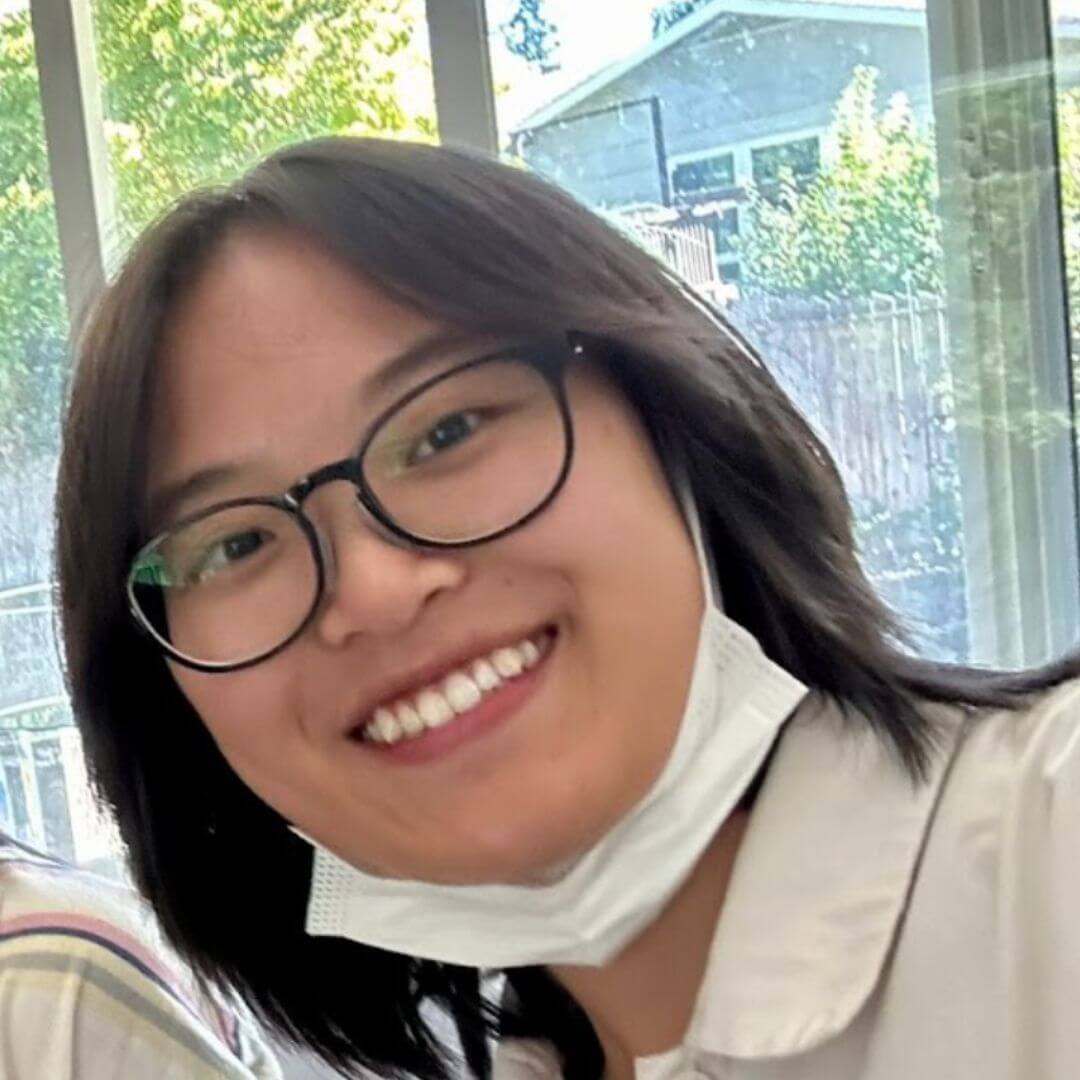
Hometown: Bay Area, CA
What was I doing before DRBU?
I was studying biochemistry at the University of California, Davis while working as an undergraduate researcher in a research lab. After a series of tumultuous occurrences, a spiritual beckoning led me to set aside my endeavors in science— something that I’ve held onto since I was a young child— and look for something deeper in life. So, I found myself making many uncertain steps from scientific to spiritual investigation over the course of my later years in college. I didn’t know where I was going; I was simply “looking for something real,” whatever that meant.
I remember it took me nearly three months to finally commit to enrolling at DRBU, even though there wasn’t much else in my life that made sense. So I made the daunting leap of faith into this deep, black chasm of uncertainty to see what DRBU was all about. Looking back, though, I am so glad I found the courage to make that choice to come here right after UC Davis.
Influential class I’ve taken
I can’t really choose a single influential class because the whole program is so rich and comprehensive. It’s like a kaleidoscope of beautiful colors. But, for the sake of answering this question, I’d probably say Buddhist Hermeneutics II: Hermeneutics of Practice, where we get to study the lives of many spiritual practitioners and how they wrestled with embodying the Dharma in their practice.
Influential book I’ve read
The Platform Sutra. I used to be an avid jazz musician, but set it aside for some time, as I found the music was interfering with my meditation practice. After reading a short line of text at the end of my first fall semester, however, it seemed the time was right for me to return home. It was the very last straw. Since then, I am finding that music is revealing parts of myself that I had not known about before. All this would not have been possible without the Sixth Patriarch!
Concept that blew my mind
Loving-kindness. It blew ‘my mind’ in the sense that it made me aware of my physical body. Growing up, much of my awareness was trapped up in the intellectual mind. Overtime, I am realizing how unaware I am of the existence of the physical body— its breathing, its muscles— and how much natural, calm observation can come about through awareness of the body.
Challenge(s) I faced
Oh, so many… Some of the challenges that I faced (and still face): doubts, self-judgment, anxiety, pride, fear, rigid views. It’s a bittersweet learning process that requires sincere honesty, deep courage, and many, many noble friends. ‘Bittersweet’ is an accurate description, a term coined to us when we first came into DRBU: first comes the bitter, then comes the sweet. Though it is painful at times, somehow, there’s something deeply rewarding about it. Every ounce of effort, every milestone big or small, is truly won and earned. It is authentic work.
What surprised me about DRBU?
That people are sincerely kind and welcoming and try their best to support each other’s well-being: tasty vegan food, small acts of kindness between students, movie nights, student magazine, etc.
Title of senior essay/a recent paper:
“A Teaching for All Beings”
What is it about?
Exploring the Buddhist concept of anatman, often translated as no-self, across the Buddhist texts, including the Sabbasava Sutta, the Pancavaggi Sutta, the Platform Sutra, Vajra Sutra commentaries, and Heart Sutra commentaries.
What is it really about?
I found that various Buddhist texts suggest that what the Buddha wanted for us was to be free in the deepest sense (see DRBU mission statement) and that, ultimately, he didn’t want us to become ‘Buddhists.’ For, identifying as a Buddhist in any way is simply another attachment. What this suggests is that this thing called ‘Buddhism’ — which I renamed to “a teaching for all beings,” a phrase proclaimed by Master Hua— is something that includes all things. It encourages to the fullest the harmony among all religions and cultures up to and including all beings and natural environments. This is what it means to practice anatman, being free of a self, being free of grasping.
What language are you taking?
Classical Chinese IV.
What’s your service scholarship (work study) job?
I wash dishes at Jyun Kang restaurant and at Sudhana Center. I also do administrative duties at DRBU.
What do you do for fun?
I’ve been playing the saxophone for some time, with a particular interest in jazz. I’m also a lover of poetry. Somehow there is wordless beauty behind the written words. Mary Oliver, W.S. Merwin, and Robert Frost are a few of my favorites at the moment. I try to read poetry first thing in the morning after my meditation sits when my mind is most open and soft.
How has financial aid played a role in your being here?
One of the unique things about DRBU is that they truly put the well-being of students first. They whole-heartedly support students coming here and truly believe that finances shouldn’t be an obstruction to a genuine education. I was initially hesitant about coming to the Master’s program due to finances, but the service scholarship and financial aid made it much more manageable.
How does what you’re learning here carry out into the world?
I don’t think it’s so much about what I’m “learning” per se that I’m bringing out into the world, but rather what I am discovering about myself. It’s an activation rather than an accumulation, as the Dao De Jing says. The two-year program has initiated this exploration of the deepest parts of myself: some of it bright, some of them painfully dark (and oftentimes cleverly obscured!). But it’s continually activating this inner sensibility and is what I hope to bring out to the world.


